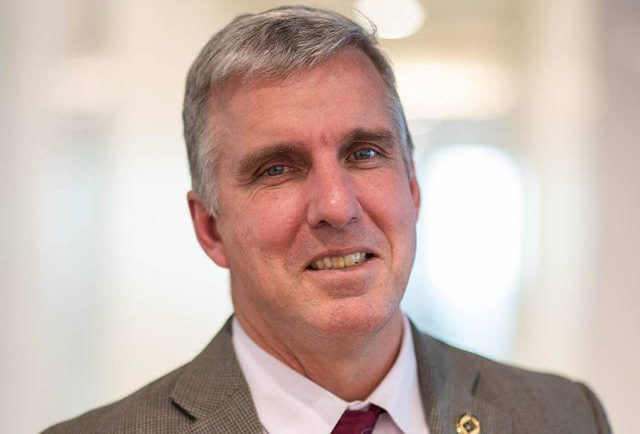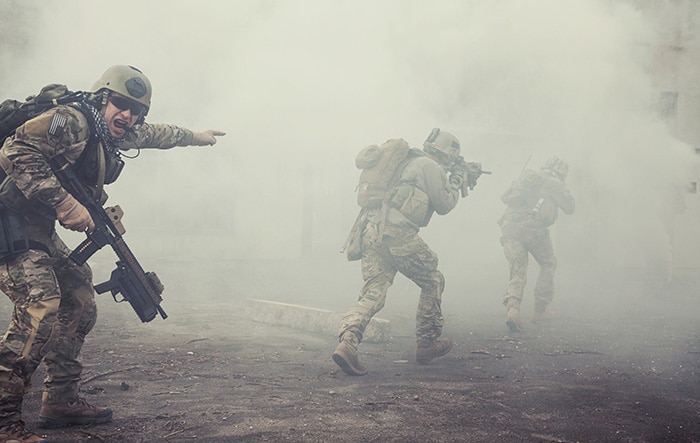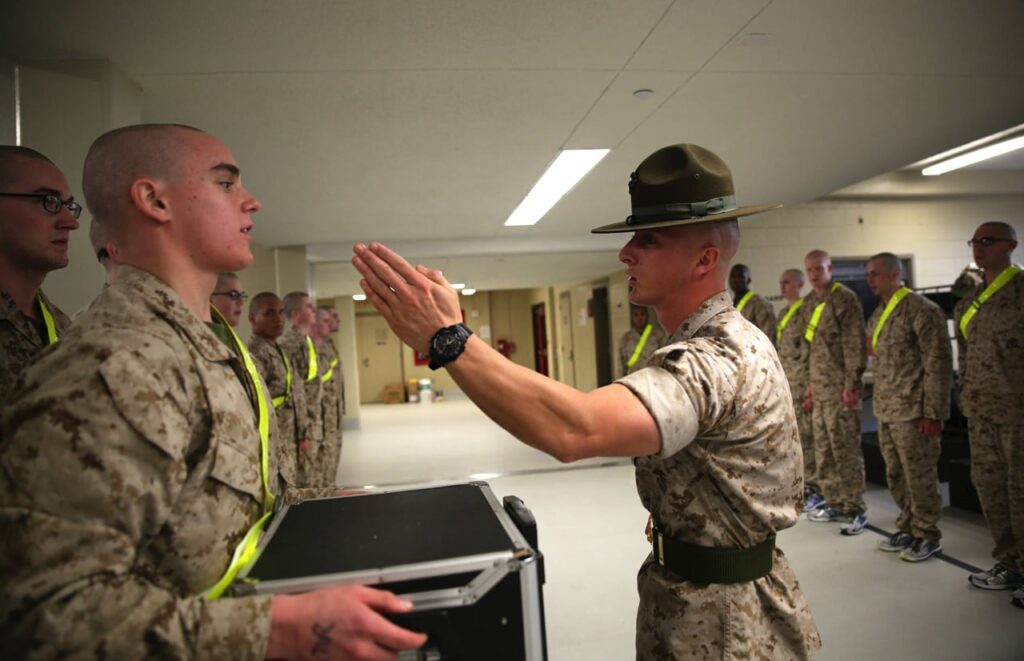
- The App
- Sandboxx News
- Resources
Learn
- Company
About
Become a Partner
Support
- The App
- Sandboxx News
- Resources
Learn
- Company
About
Become a Partner
Support
Colonel S. Jamie Gayton is the author of Guide to Personal Financial Planning for the Armed Forces (now in its 7th edition). A graduate of...

Colonel S. Jamie Gayton is the author of Guide to Personal Financial Planning for the Armed Forces (now in its 7th edition). A graduate of United States Military Academy, he deployed to Saudi Arabia and Iraq in support of Desert Shield and Desert Storm, and commanded a battalion in Iraq from 2005 to 2006 during Operation Iraqi Freedom.
He earned an MBA from the Sloan School at MIT, his Ph.D. from the Pardee RAND Graduate School in Santa Monica, and has taught economics at West Point. He is currently executive vice president of member operations and global fixed assets at PenFed Credit Union.
Your book has been an amazing success; you published the seventh edition a few years ago. Can you tell us what inspired you to write the seventh edition of the book?
I have a passion for personal finance. I do not believe we do enough as a country to prepare young people for this critical skill. We require students to take several years of math, history, English and science, but in most schools, personal finance is not required and may not even be offered.
This is why I wrote the seventh edition to The Guide to Personal Financial Planning for the Armed Forces. All the proceeds from the book are donated directly to the Education Endowment fund at West Point, which is used to support the Investment Club, which I led for two years while I was teaching there.
I also brief officer groups, enlisted groups, spouses’ groups, high school classes, and cadets to help them understand and begin their personal finance journey. I have often shared that careful management of financial resources including early investment to take advantage of compounding returns, living within your means, limiting consumer debt, and maintaining a pristine credit score can lead to a very successful retirement whether you are a high, medium, or low wage earner. Managing your financial resources is the key component!
You led a lot of young Soldiers during your military service, and have continued to follow their financial journeys in your job as well. What is your assessment of the financial literacy within the military?
Nearly two-thirds of military families still say they have experienced stress due to their current financial situation. That’s a major problem. About 200,000 new recruits enter the military every year, and a lot of them don’t have a solid understanding of how to make major purchases, invest in their education or retirements, or manage their credit scores.
We also have to remember that our military is largely very young. Around 40% of active duty enlisted Army, Marine, and Navy troops are 24 or younger, and over 80% of Marine recruits are 20 or younger. Many are coming just out of high school. The military, along with our high schools, have a huge responsibility to make sure that we do right by the people protecting our nation by educating them on how to manage their money and secure their financial futures.
Can you give an example from your service?
In my first platoon, I found that a number of Soldiers were trying to limit how much money they spent every month by taking out only what they needed for each daily activity.
The problem with this approach (that they did not understand) was that they were being charged for each withdrawal (sometimes as many as 20 per month) and oftentimes incurring overdraft fees. In one case, my Soldier’s fees and charges exceeded the amount he had withdrawn in the month.
While deployed, the military offers a Savings Deposit Program to incentivize Soldiers to save money to prepare for their future post-combat. The program offers a guaranteed 10% return on up to a $10K investment—risk free. I found out that only ~10% of my battalion had enrolled in the Savings Deposit Program and frantically started an education campaign. It turns out they had not enrolled because no one had taught them about the power of compounding interest and the urgency of saving and investing early.
What are some of the basics you hope every recruit comes into the military knowing?
Everyone should know:
How do you think our country can better educate our high schoolers (and current and future military servicemembers) in financial literacy?
One of the projects I’ve been most proud of at PenFed has been providing free financial literacy software to high school students in Puerto Rico. We chose Puerto Rico to start this program because of the devastation Hurricane Maria caused to the residents and our desire to help the next generation enhance their financial literacy. They learn the basics of personal finance, like savings and checking accounts, credit scores, buying a car or house, submitting applications for college aid, and starting investments.
Students take an assessment test before and after the program, and the scores of students who completed the program increased by 74%. That’s incredible! It’s more complicated to do something like this in the continental U.S., but I think we need to think about how we can educate our teens about financial basics they need to know when they graduate.
You were assigned to the Pentagon in 2001. Can you tell us about that day?
I arrived at the Pentagon in August 2001 and was on temporary duty at Fort Leavenworth, Kansas on 9/11. My sponsor and other members of my team who were at the office that day were killed. I flew back to Andrews Air Force Base on an Army jet and returned to the smoldering Pentagon that evening.
LTG Maude, the Deputy Chief of Staff for Personnel (DCSPER) had been killed in the attack, so the Deputy DCSPER and I (along with many others) had to officially account for the missing and the dead. After taking the first-hand accounts of survivors and those who had re-entered the building to rescue those who were still inside, I wrote the posthumous and valorous awards for all members within the DCSPER’s purview. I was fortunate to not be there that day, and at the memorial services (where I had to write the remarks for the new DCSPER), I kept envisioning my family sitting in the front row … for my memorial service—those were tough days.
Your nickname is BIG SMILES. Can you tell us about that?
Everyone calls me “Big Smiles,” and eventually I put it in my email signature. It has been there for about 25 years now. I have even had Soldiers reach out to me because they saw an email trail with that tagline – knowing they had found their old Economics professor or commander. I love what I do. I loved what I did in the military, and when I retired in 2017 and transitioned to a civilian career, I was still working with the military community, and I love this job at PenFed too.
Everyone should go to work every day with a smile on their face. People want to be around positive people. When people ask how I am doing, my response is always, “Awesome.” I have been known to sing the LEGO song in the morning at work: “Everything is awesome! Everything is cool when you’re part of a team. Everything is awesome when you’re living our dream.”




